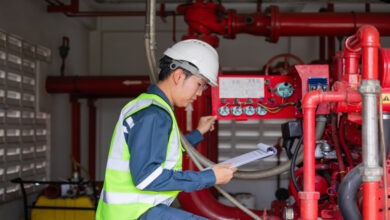
5 Things Every Beginner Welder Should Know
Whether you have begun welding as a professional or hobbyist, you already know that the job is difficult and intricate. Fortunately, with the right preparation and mindset, you can build a solid foundation that will help you grow your skills over time. Here are a few things every beginner welder should know to start off strong.
You Should Start With the Right Gear
Welding is a high-risk task. Heat, sparks, noise, and fumes are all hazards you’ll encounter, so it’s essential to protect yourself with the right gear.
Proper PPE (personal protective equipment) is just one of the tools that will make a welder’s life easier. For example, a welding helmet with auto-darkening technology will protect your eyes from intense light and flying sparks. Durable gloves and flame-resistant clothing are equally essential to protect your hands and body from burns. Don’t forget sturdy boots to shield your feet from falling debris.
There Are Several Different Types of Welding
As you work toward becoming a well-rounded welder, you’ll learn how to perform several different types of welding, such as these:
- Metal gas inert welding
- Gas tungsten arc welding
- Shielded metal arc welding
- Flux-cored arc welding
- Gas metal arc welding
- Submerged arc welding
- Plasma arc welding
Moreover, you’ll develop a welding technique that is unique to you, regardless of the method you’re employing.
Not All Metals Weld the Same
If you’ve assumed welding is the same no matter the metal, think again. Different materials require different approaches. For example, steel welds relatively easily and is forgiving for beginners, while aluminum requires much more precision because it is highly conductive. Understanding the properties of the materials you’re working with allows you to adjust your equipment and process accordingly to achieve strong, clean welds.
Welding Is Hard on the Body
Welding isn’t just tough on materials—it also takes a toll on your body. Prolonged time spent bending, kneeling, and supporting heavy tools can strain your body.
Protect yourself by practicing proper posture, taking regular breaks, and practicing recovery activities at home.
It Takes Time To Get Good
Like any other trade skill, welding is difficult and requires time to master. Your first hundred attempts might look messy, and that’s okay. You’ll need to be patient, practice, observe, and adjust. If you’re in a professional environment, make sure you heed the advice and instruction of senior welders, as this is a fast track to quality and success.
Becoming a skilled welder doesn’t happen overnight, but with persistence and the right knowledge, you’ll get there. Start by remembering these five things every beginner welder should know.






